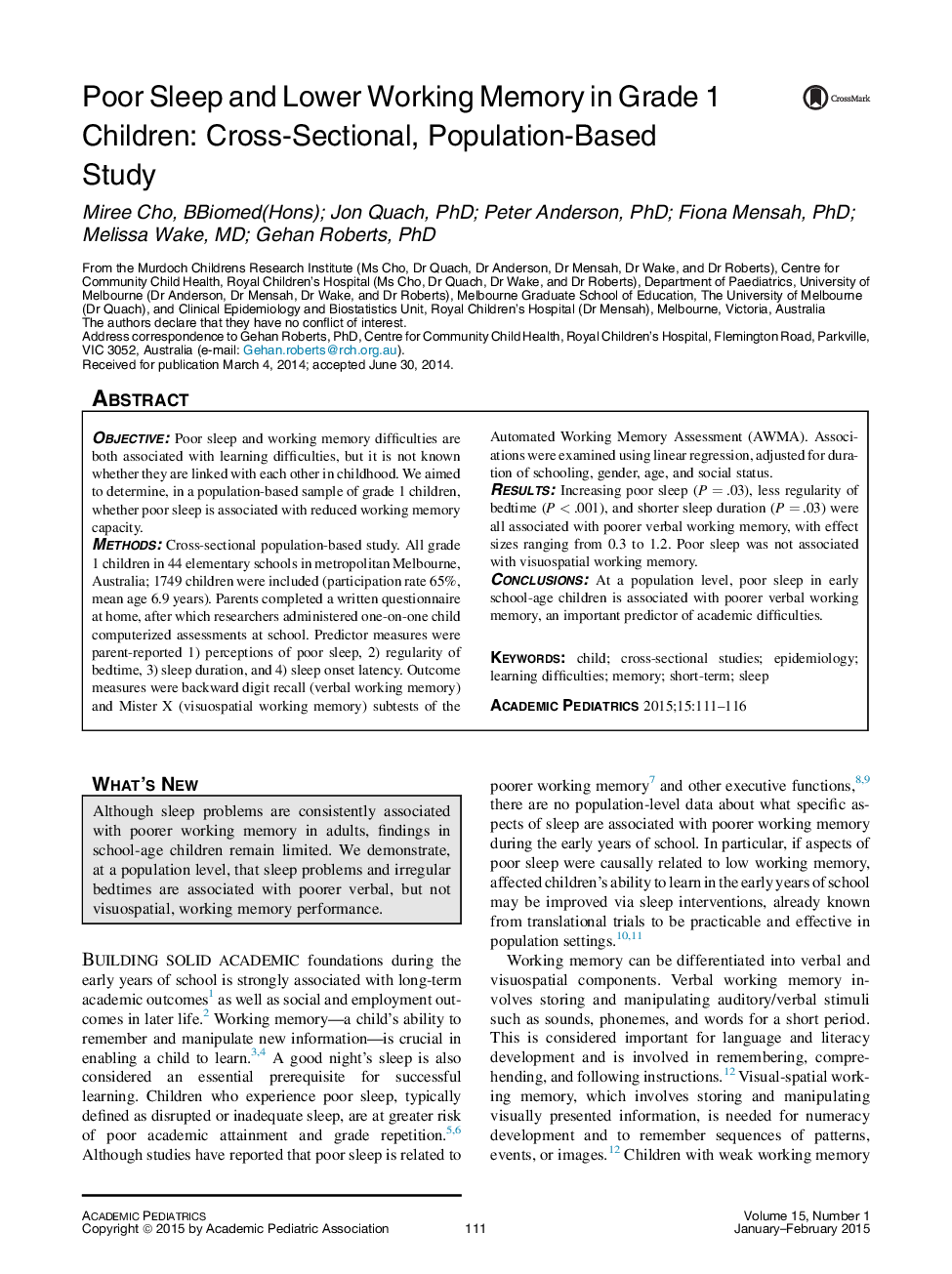| Article ID | Journal | Published Year | Pages | File Type |
|---|---|---|---|---|
| 4139563 | Academic Pediatrics | 2015 | 6 Pages |
ObjectivePoor sleep and working memory difficulties are both associated with learning difficulties, but it is not known whether they are linked with each other in childhood. We aimed to determine, in a population-based sample of grade 1 children, whether poor sleep is associated with reduced working memory capacity.MethodsCross-sectional population-based study. All grade 1 children in 44 elementary schools in metropolitan Melbourne, Australia; 1749 children were included (participation rate 65%, mean age 6.9 years). Parents completed a written questionnaire at home, after which researchers administered one-on-one child computerized assessments at school. Predictor measures were parent-reported 1) perceptions of poor sleep, 2) regularity of bedtime, 3) sleep duration, and 4) sleep onset latency. Outcome measures were backward digit recall (verbal working memory) and Mister X (visuospatial working memory) subtests of the Automated Working Memory Assessment (AWMA). Associations were examined using linear regression, adjusted for duration of schooling, gender, age, and social status.ResultsIncreasing poor sleep (P = .03), less regularity of bedtime (P < .001), and shorter sleep duration (P = .03) were all associated with poorer verbal working memory, with effect sizes ranging from 0.3 to 1.2. Poor sleep was not associated with visuospatial working memory.ConclusionsAt a population level, poor sleep in early school-age children is associated with poorer verbal working memory, an important predictor of academic difficulties.
